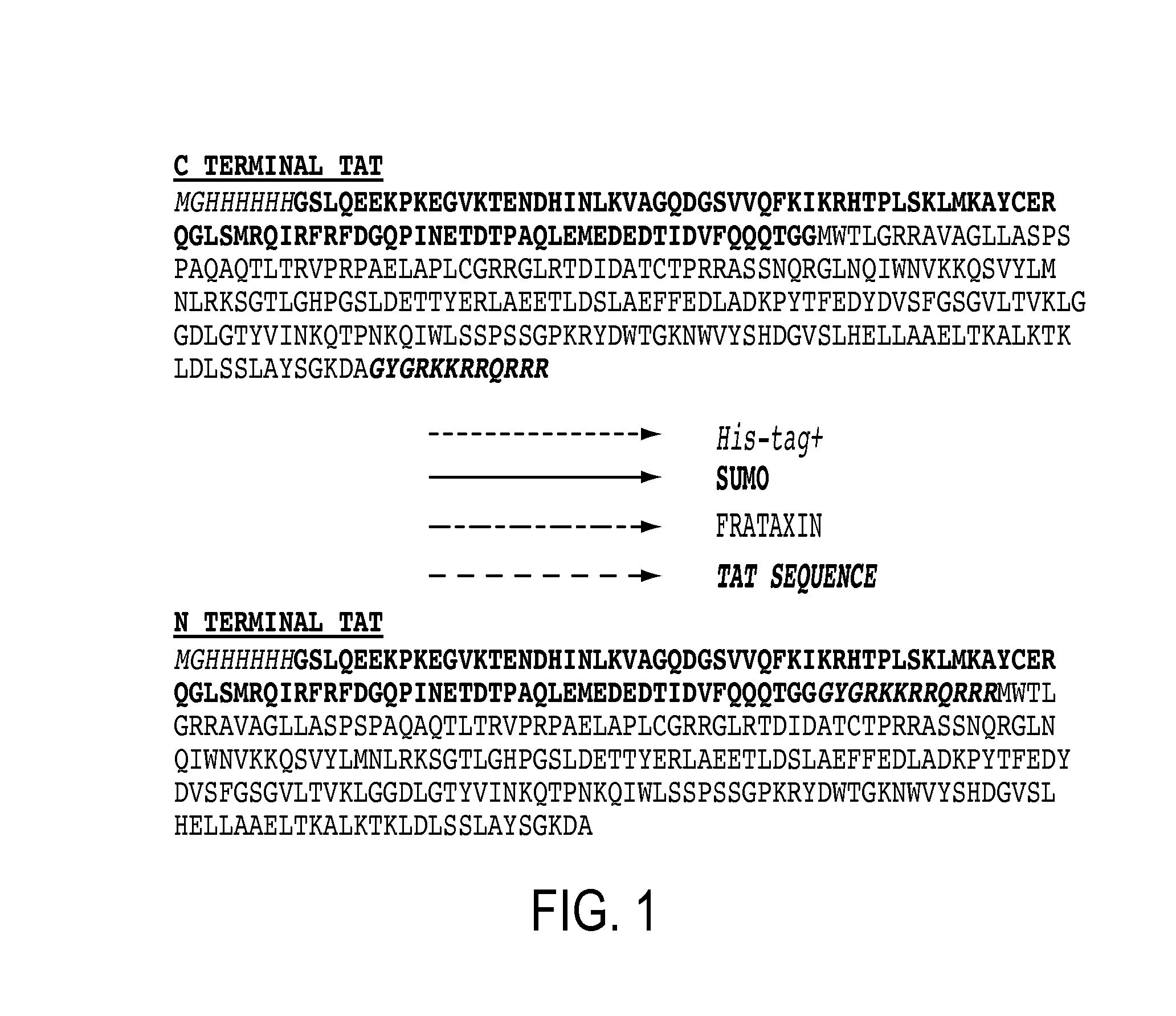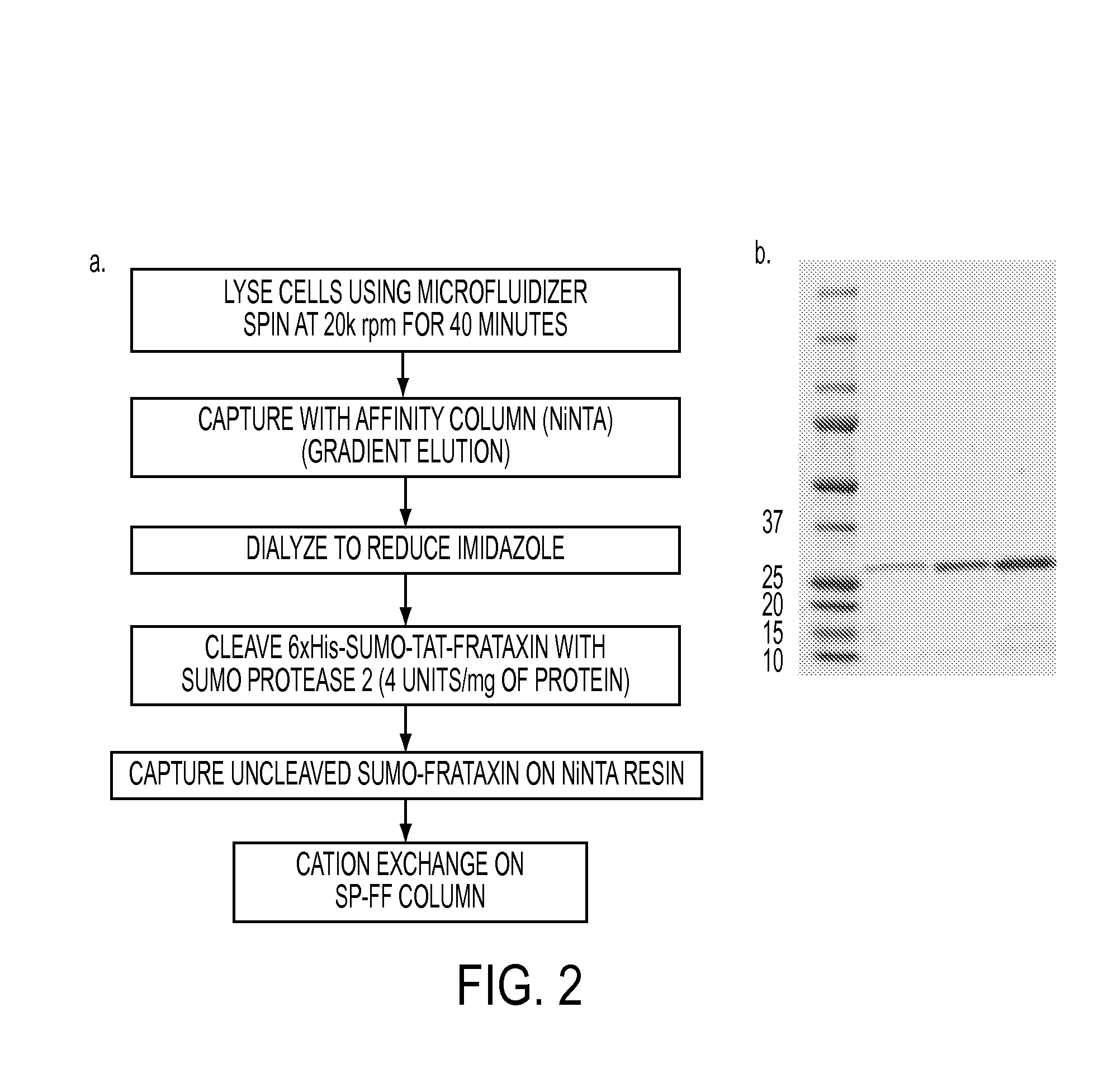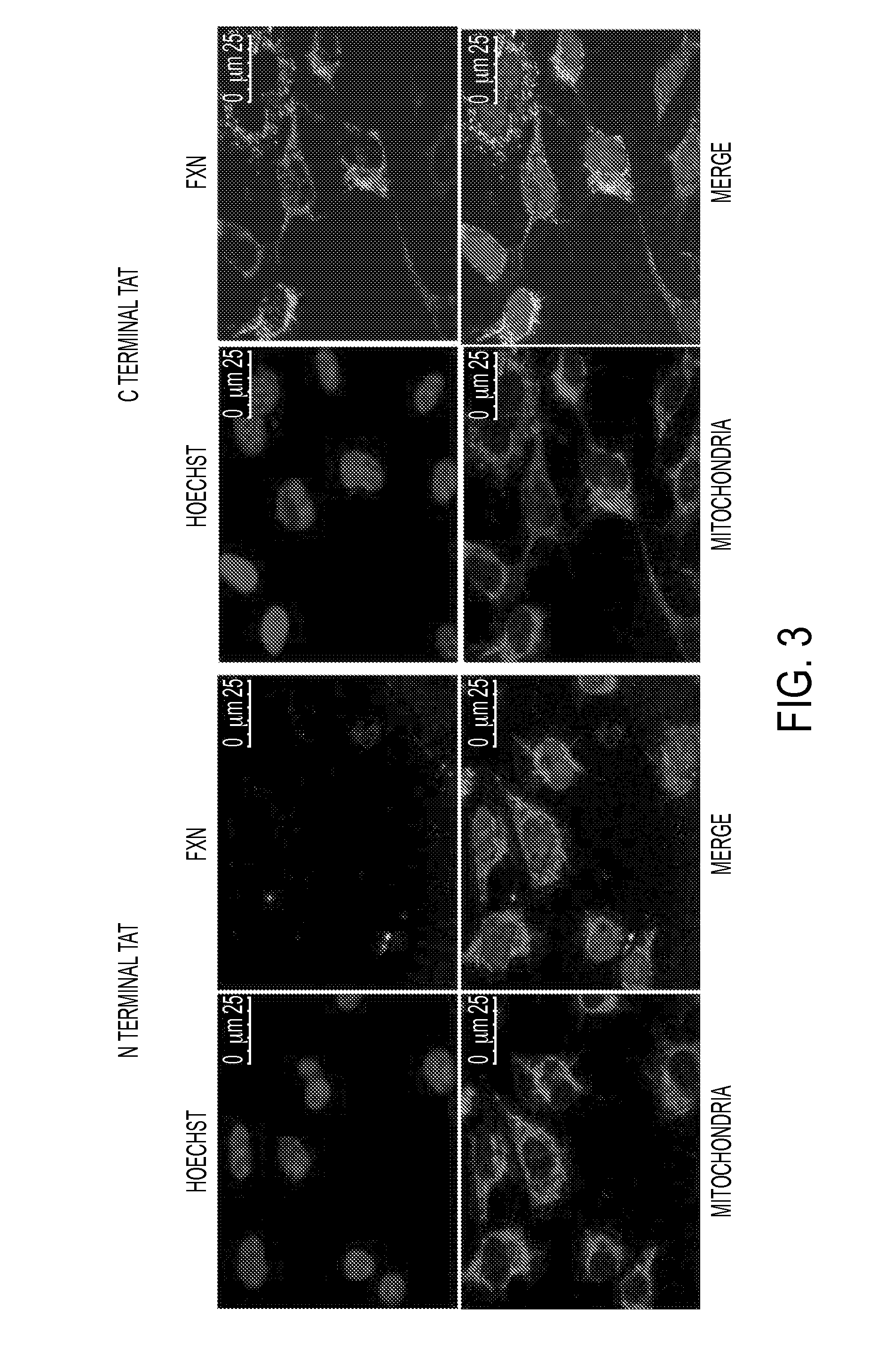Mitochondrial targeting and therapeutic use thereof
a technology of mitochondrial and target cells, applied in the direction of peptides, peptide/protein ingredients, peptide sources, etc., can solve the problems of ineffective treatment of frda, prone to motorneuron dysfunction, and severe and life-threatening cardiomyopathies of frda patients, and achieve the effect of effective treatmen
- Summary
- Abstract
- Description
- Claims
- Application Information
AI Technical Summary
Benefits of technology
Problems solved by technology
Method used
Image
Examples
example 1
Expression of N- and C-Terminal FXN-TAT Fusion Proteins
[0105]This example demonstrates the development of a recombinant FXN protein with cell penetrating properties.
[0106]As a first step in producing a recombinant FXN molecule with cell penetrating properties, FXN-TAT fusions were created with the TAT peptide located at either the N or C terminus of the FXN molecule (referred to as “N terminal FXN-TAT” or “C terminal FXN-TAT,” respectively). Fusions were constructed in small ubiquitin-related modifier (SUMO) prokaryotic expression vectors and expressed in E. coli. SUMO technology (Butt, et al. Protein Expr Purif. 2005 September; 43(1):1-9; Marblestone et al. Protein Sci. 2006 January; 15(1):182-9) was utilized to minimize N terminal proteolysis of recombinant FXN protein during expression and purification. FIG. 1 depicts amino acid sequences of exemplary N and C terminal FXN-TAT fusion proteins. Following cleavage of the SUMO fusion partner, full length N and C terminal FXN-TAT fusi...
example 2
Mitochondrial Trafficking of N and C Terminal FXN-TAT Fusion Proteins
[0110]Experiments described in this example demonstrate that recombinant C terminal FXN-TAT fusion protein can effectively traffic to mitochondria of cells. By contrast, the N-terminal fusion protein could not traffic to the mitochondria. This discovery is surprising and unexpected from the teachings in the prior art.
[0111]Specifically, following purification of FXN-TAT fusion proteins, as described in Example 1, fusion proteins were characterized in a series of cell based assays. Initially, intracellular trafficking of each of the N and C terminal FXN-TAT fusions was investigated by directly electroporating the respective protein into the cytoplasm of NC6 SV40 cells. FXN staining was quantified 48 hours following protein electroporation via immunofluorescence and confocal imaging, using the human specific anti-FXN monoclonal antibody 18A5DB1.
[0112]NC6 SV40 cells are an engineered cell line described previously (se...
example 3
Processing of C Terminal FXN-TAT Fusion Proteins within Mitochondria
[0117]Experiments described in this example demonstrate that recombinant C terminal FXN-TAT fusion protein are processed to mature form within the mitochondrial such that the FXN protein is therapeutically active.
[0118]FXN protein is produced as a precursor molecule that is processed to a mature form within the mitochondria (Condo, et al. Hum Mol Genet. 2007 Jul. 1; 16(13):1534-40). This process generally occurs in two steps, yielding an intermediate and mature form of the molecule (Schmucker, et al. Hum Mol Genet. 2008 Nov. 15; 17(22):3521-31). While the C terminal FXN-TAT protein was shown to localize to the mitochondria when added exogenously to cells, it was not known if the presence of the TAT peptide would affect mitochondrial processing.
[0119]In order to determine the maturation state of exogenously delivered FXN, whole cell extracts were prepared from FXN-TAT treated cells and FXN processing was assessed by ...
PUM
| Property | Measurement | Unit |
|---|---|---|
| survival time | aaaaa | aaaaa |
| survival time | aaaaa | aaaaa |
| survival time | aaaaa | aaaaa |
Abstract
Description
Claims
Application Information
 Login to View More
Login to View More - R&D
- Intellectual Property
- Life Sciences
- Materials
- Tech Scout
- Unparalleled Data Quality
- Higher Quality Content
- 60% Fewer Hallucinations
Browse by: Latest US Patents, China's latest patents, Technical Efficacy Thesaurus, Application Domain, Technology Topic, Popular Technical Reports.
© 2025 PatSnap. All rights reserved.Legal|Privacy policy|Modern Slavery Act Transparency Statement|Sitemap|About US| Contact US: help@patsnap.com



